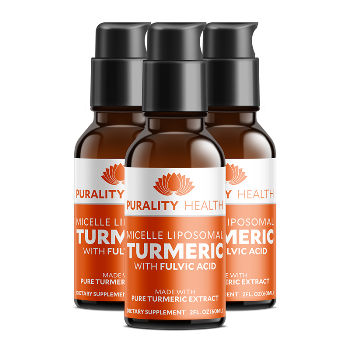Top 14 Ginger Health Benefits, Nutrition Value and Possible Side Effects

This article lists the top 14 Ginger health benefits. It also lists in a table format the Nutrition Value of 100 gr of fresh ginger as well as some rare, but possible ginger side effects.
Ginger is a plant that has many culinary and medicinal uses. It is native to Asia, and has been used in Asian cuisine for centuries. Ginger (Zingiber officinale Rosc.) belongs to the family Zingiberaceae. However, ginger can also be used in sweet or savory dishes from other cuisines as well.
The most common use for ginger is as a spice or flavor enhancer. It can be used fresh, dried, or powdered. Ginger has a slightly spicy, yet sweet flavor that pairs well with many other spices and flavors. It is commonly used in savory dishes such as curries and stir-fries. It can also be used to add flavor to baked goods, such as gingerbread or ginger snaps.
Ginger is one of the most well-researched spices, and has been shown to have many health benefits. It is a natural anti-inflammatory and can help to soothe an upset stomach.
Ginger has also been shown to be effective in treating nausea, whether it is caused by motion sickness or chemotherapy. Additionally, ginger may help to reduce muscle pain and soreness.
In this article we are going to take an in-depth look at ginger, including its nutritional value, health benefits, and possible side effects.
Nutritional Value of Ginger
A typical serving on Ginger is about a teaspoon or 2 grams. The table below shows the nutritional value of 100 grams of fresh ginger root.
| Nutrients | Amount |
|---|---|
| Calories | 80 Kcal |
| Protein | 1.82 g |
| Fat | 0.75 g |
| Carbohydrates | 17.8 g |
| Fiber | 2 g |
| Sugars | 1.7 g |
| Calcium, Ca | 16 mg |
| Iron, Fe | 0.6 mg |
| Magnesium, Mg | 43 mg |
| Phosphorus, P | 34 mg |
| Potassium, K | 415 mg |
| Sodium, Na | 13 mg |
| Zinc, Zn | 0.34 mg |
| Copper, Cu | 0.226 mg |
| Manganese, Mn | 0.229 mg |
| Selenium, Se | 0.7 µg |
| Vitamin C | 5 mg |
Ginger Health Benefits
Ginger has a long history of use for various health conditions. Some of the most well-known benefits are:
Treating nausea
Ginger has been shown to be effective in treating nausea caused by motion sickness, chemotherapy, and morning sickness. A 2000 article published in the British Journal of Anaesthesia suggested that ginger was superior to placebo and equally effective as metoclopramide. [1]
Reducing inflammation
Ginger contains compounds that can help to reduce inflammation throughout the body. A comprehensive systematic review of 16 randomized controlled trials states that:
“The recent and abundant clinical trials reviewed here demonstrate compelling evidence for ginger’s anti-inflammatory properties and potential use as a treatment for a variety of inflammatory diseases that plague industrialized nations. [2]
Relieving pain
The anti-inflammatory properties of ginger make it effective in relieving pain from arthritis and menstrual cramps.

Improves brain function
Ginger has been shown to improve memory and reaction time in a study of healthy adults.
Recent studies demonstrated that ginger significantly enhances cognitive function in various cognitive disorders as well as in healthy brain. Studies made in mice and published in the The Journal of Nutritional Biochemistry shown significantly improvement of the ability of mice to recognize novel objects, indicating improvements in learning and memory. [3]
Improves Digestion
Ginger has long been used as a remedy for indigestion. It can help to increase saliva production and make it easier to digest food.
Painkiller Properties
Ginger contains natural painkilling properties and is often used as a home remedy for headaches and toothaches.
Improves Blood Circulation
Ginger can help to improve blood circulation and is often used as a natural treatment for cold hands and feet.
Ginger has the possibility of lowering your blood pressure. Once the pressure placed on your veins is reduced, blood flow becomes easier.
Ginger has also blood-thinning properties, and since thinned blood is easier for your heart to pump, it can assist in improving blood flow inside your arteries. [4]
Can help with breathing problems
Ginger, due to its anti-inflammatory properties can help to clear the lungs and airways, making it easier to breathe.
May improve fertility
Ginger, has the ability to improve ovarian function and increase circulation to the reproductive organs, making it a possible natural treatment for infertility.
A study published by the Journal of the Chinese Medical Association found that subjects that were taking 100mg of ginger of 5 days exhibited significantly higher antral follicle count and ovarian stromal VEGF (Vascular endothelial growth factor) in comparison to the control group. [4]

⭐⭐⭐⭐⭐
Their unique Micelle Liposomal delivery composed of organic glycerin extract and fulvic acid, protects the turmeric from breakdown in the digestive tract, delivering a powerful, soothing dose right where you need.
This Liposomla Turmeric supplement contains the whole, full-spectrum turmeric chemistry with 199+ powerful active compounds – linked with overall well-being.
May Prevent Colorectal cancer
Although a bold claim, anticancer activities of ginger against colorectal cancer have been well documented. Numerous in vitro studies showed that ginger and its active components inhibit growth and proliferation of colorectal cancer cells. In a study, 6-gingerol inhibited growth of colon cancer HCT116 cells. [5]
Stronger Immune System
The antioxidants in ginger help to strengthen the immune system, making it easier to fight off infections.
Relieves Menstrual Discomfort
The anti-inflammatory properties of ginger make it an effective natural treatment for the pain and cramping associated with menstrual periods.
More specifically a study showed that taking ginger 2 days before the onset of the menstrual cycle was significantly better at decreasing the duration of pain. [6]
Anti-Stress
Ginger has been shown to help the body adapt to stress and may help to reduce the negative effects of stress on the body.
Skin Benefits
Ginger improves skin elasticity and evens skin tone, which further helps improve skin texture. It can also reduce the appearance of wrinkles and fine lines, fade scars as well as improve acne.

Possible Side Effects of Ginger
Although ginger is generally safe, there are a few possible side effects to be aware of. These include:
Heartburn
For some people, ginger can cause heartburn or make it worse. If you are prone to heartburn, it is best to avoid ginger or consume it in moderation.
Diarrhea
Ginger can also cause diarrhea in some people. If this occurs, it is best to stop consuming ginger and see if the symptoms improve.
Allergic reactions
Although rare, some people may be allergic to ginger. If you experience any symptoms of an allergic reaction, such as hives or difficulty breathing, it is important to seek medical attention immediately.
👉 Pregnant women and young children should avoid consuming large amounts of ginger due to the lack of safety data. If you are pregnant or breastfeeding, it is best to speak with your doctor before consuming ginger.
Potential Drug Interactions
Ginger, a spice we often use in our kitchens, has been a staple in natural remedies for centuries. Today, while it’s available in supplement form, the best way to reap its health benefits is by consuming it raw.
Research supports the health-boosting properties of ginger. For instance, sipping on ginger tea can alleviate symptoms of colds and coughs during winter and bolster your immune system. It’s an effective and affordable way to prevent various infections and inflammatory diseases.
However, despite its health benefits, ginger isn’t recommended for everyone. Particularly, if you’re on certain medications like blood thinners or diabetes drugs, ginger could have adverse interactions.
Diabetes Medications
Ginger can naturally lower blood sugar levels – a benefit that might tempt those with type 2 diabetes to try it instead of their usual medication.
Consuming less than 4 grams of ginger can help regulate insulin levels and maintain healthy blood pressure.
However, if you’re already taking drugs like Metformin, combining them with large amounts of ginger could lead to digestive issues such as nausea and heartburn. So it’s advisable to either avoid or limit the consumption of ginger while on these medications.
Blood Thinners
Given its natural blood-thinning properties, ginger doesn’t mix well with anticoagulant medications (blood thinners).
If you’re on such drugs including Warfarin, Naproxen or Enoxaparin, you should be cautious about your intake of ginger to prevent potential excessive bleeding. Always consult your doctor before mixing these substances.
Hypertension Drugs
If you’re using medication to manage high blood pressure like Norvasc, it’s best not to consume ginger concurrently.
The combination may cause your heart rate to drop excessively leading potentially irregular heartbeat among other complications.
Gallstones
While not exactly a drug interaction issue per se; it’s worth noting that consuming ginger when having gallstones might worsen the condition due to increased bile production stimulated by the spice which could result in intense pain due blockage in bile ducts by lodged gallstones
So how much is safe? It really depends on individual tolerance levels but generally speaking up-to 4 grams of daily intake is considered safe although some people might tolerate more without any side effects.
Always remember: When in doubt, it’s best to consult with your healthcare provider.
Final Words
Ginger can rightfully be called a wonder of nature . This humble root has a long history of use in traditional medicine and offers a wide range of health benefits.
From improving digestion and circulation to reducing inflammation and pain, ginger is a versatile remedy that can be used for a variety of conditions. And, best of all, Ginger is generally considered safe for most people.
However, some people may experience side effects, such as heartburn, diarrhea, or mouth irritation. Additionally, ginger may interact with certain medications, such as blood thinners or diabetes medications. Therefore, it is important to speak with a healthcare provider before adding ginger to your diet.
Read Next
